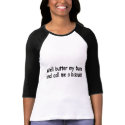The phrase “butter wouldn’t melt in his mouth” is one of the most misunderstood phrases in the English language. Some people think it is used to mean that a person is sweet and innocent whilst others are adamant that it means that a person is a manipulator or a liar. It seems a bit surprising to find one phrase with such polar opposite interpretations. So which is it? And what’s it got to do with butter melting? What’s the story behind the idiom “butter wouldn’t melt in your mouth”?
The original meaning of the phrase “butter wouldn’t melt in your mouth”
Originally, around 1530, the phrase was far less obscure than it may seem today, because when it first started being used, it was directly related to a person having a cold, detached and emotionless manner (where “cold” used in this way is an older metaphor itself). The idea was that a person was so cold that his mouth was at a temperature at which butter wouldn’t melt.
Evolution of the phrase
Throughout time the phrase “butter wouldn’t melt in his mouth” evolved.
From cold and detached, it came to be used to refer to people who were prim and proper, who acted by society’s rules regardless of their own feelings about any situation. (This disregard for their feelings is where the cold, emotionless side of the phrase came into the equation). For the purpose of doing the socially-determined “right” thing, girls may have pretended to be modest and shy, or high society men and women may have pretended to be interested in politics or theatre or whatever society deemed as the “proper” things to be interested in.
This is where the confusion of this phrase began:
The meaning of the phrase began to branch in two directions:
- Butter wouldn’t melt in his mouth meaning “liar”:
Some people began associating the phrase with phony people in society who were putting on an act to fit in and be seen favorably. They lied about their true feelings and were therefore seen as insincere, liars or manipulators. - Butter wouldn’t melt in his mouth meaning “sweet and innocent”:
Other people focused on the “prim and proper” nature that was a result of ignoring personal feelings for the sake of fulfilling society’s expectations. Throughout much of history, it was the prim and proper thing, especially amongst young ladies, to appear sweet and innocent; hence this new meaning became attached to the “butter wouldn’t melt in her mouth” phrase.
When used in this sense however, there is often a negative twist on the phrase. When used to describe someone as sweet and innocent, it is almost always followed by a “but”.
A good example of this can be seen in William Makepeace Thackeray’s Pendennis (1850): “When a visitor comes in, she smiles and languishes, you’d think that butter wouldn’t melt in her mouth: [BUT] the minute he is gone, very likely, she flares up like a little demon, and says things fit to send you wild”.
Over time, some people have forgotten the “but” and have begun associating the phrase with genuine sweet innocence, even though this isn’t the strictly correct use of the original phrase.
In essence, both of these definitions have some truth to them, but both definitions only tell part of the whole story. The full story is that “butter wouldn’t melt in your mouth” only if you are at some level acting in a way which is cold and detached from your true emotions.
Other articles you may enjoy:
Check out our other etymology articles including:
- Why do we say “eat your heart out”?
- Why do we someone has “egg on the face”?
- Why do we have the phrase “in a nutshell”?
- Why do we say we tie the knot when we get married?
Related Products










Late comment I know… love this read though! I’m reading Edgar Rice Burrough’s “The Land that Time Forgot” and he uses the phrase, “Sugar wouldn’t melt on his tongue.” Having never heard it, I took it to mean he could do no wrong. This article has pushed me further in that direction… but since he was refering to a dog he was jealous of, perhaps it was a back-handed compliment?
Thank you very much!! This article gave me the full meaning of expression, which I found in a book Clock Dance by Ann Taylor, but from the beginning I associated it only with “cold”. Now I have learned more and appreciate it.